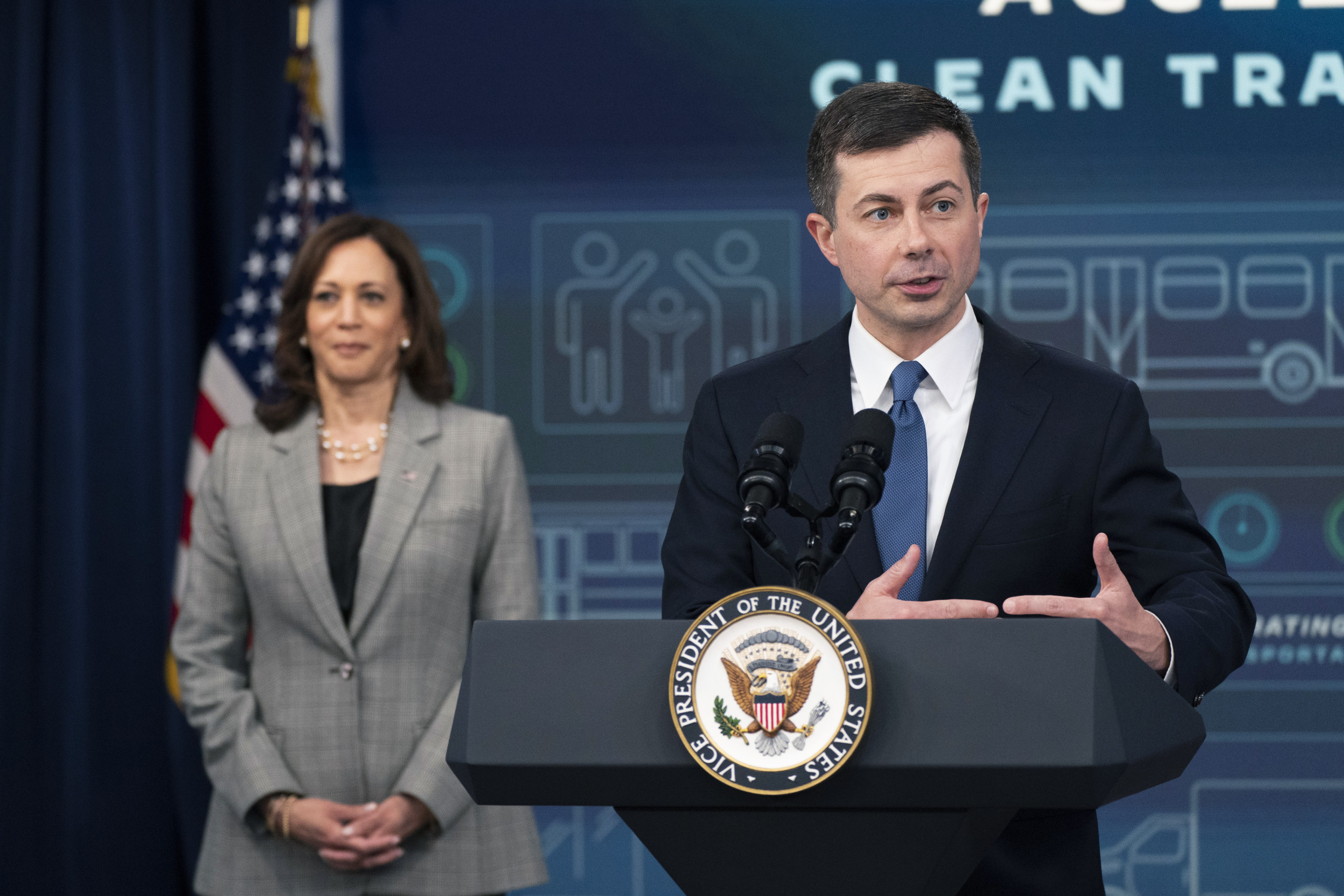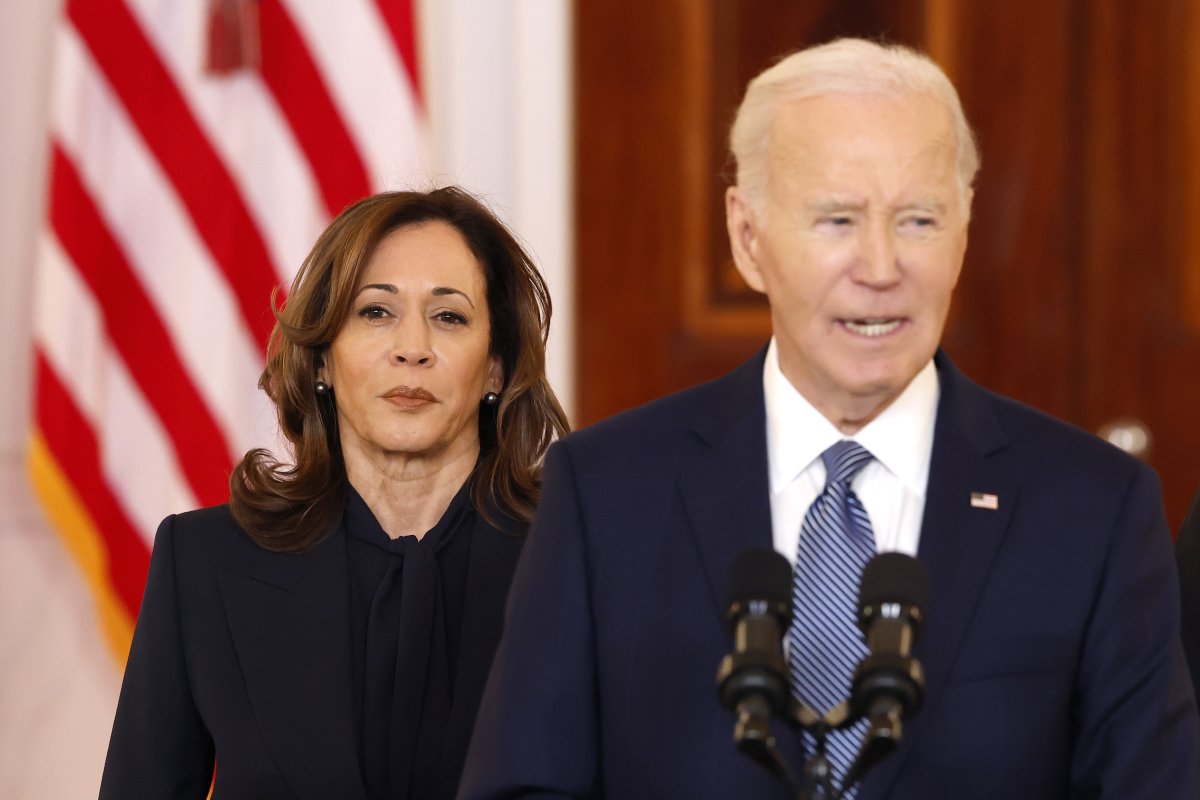
The Democrats’ painful postmortem of 2024 deepened this week with the news of Joe Biden‘s “aggressive” prostate cancer—an announcement that reinforced just how politically costly his late-stage presidency has become for a party trying to find its way after last November’s crushing electoral losses.
Biden’s cognitive decline — widely debated in public but also dismissed by party insiders during his final year in office — has become the defining litmus test for Democrats now jockeying to inherit a party still reeling from Donald Trump‘s return to the White House. For any of the potential presidential candidates in 2028, the “Biden question” is likely to become an unavoidable line of inquiry for any of them, particularly those who come from the establishment wing of the party.
“This is going to be the first real test of the 2028 campaign,” said David Axelrod, the longtime Obama strategist, in a recent NPR interview. Axelrod, who began raising red flags about Biden’s age as early as 2022, has since framed the issue as a credibility crisis for the party’s next generation of leaders.
“Anybody closely aligned with the Biden decision-making structure in 2024 will be asked to explain how we got here,” he said.
The mounting chatter among donors, strategists and party activists suggests that several prominent Democrats may be dragged into a deeper reckoning—not necessarily for what they did, but for what they didn’t do. Or say.
Biden’s Cabinet Under the Microscope
Former Vice President Kamala Harris and former Transportation Secretary Pete Buttigieg consistently top early Democratic polls for the 2028 nomination. While Harris has largely stayed out of the public eye since losing to Trump in 2024, Buttigieg has made a visible return to the national stage, appearing at town halls and events in key early primary states.
But their proximity to Biden as members of the Cabinet for his four years in office has placed both under particular scrutiny—and so have their defenses of their former boss.
According to excerpts from Original Sin, a forthcoming book by CNN‘s Jake Tapper and Axios reporter Alex Thompson, obtained by Newsweek ahead of its publication on Tuesday, Harris and Buttigieg were among the top voices in the party who continued to publicly support Biden’s capacity for leadership, even as concerns mounted behind closed doors before the disastrous debate.
AP
At a town hall in Iowa on May 13, Buttigieg was asked if Democrats would have been better off had Biden decided to bow out earlier. “Maybe,” he replied. “Right now, with the benefit of hindsight, I think most people would agree that is the case.” He added, “We’re also not in a position to wallow in hindsight. We’ve got to get ready for some fundamental tests of the future of this country and this party.”
Buttigieg was notably more guarded during Biden’s time in office. As transportation secretary, he often vouched for the president’s leadership. “Every time I needed something from him from the West Wing, I got it,” he said, defending Biden’s responsiveness and capacity. Following Biden’s cancer diagnosis that was revealed in a statement on Sunday, Buttigieg called him “a man of deep faith and extraordinary resilience,” and expressed hope for his recovery.
That carefully calibrated critique drew sharp rebuke from party veterans.
“Of course, all of the people who never said anything—now Pete Buttigieg is saying, ‘Well, it would have been better if he hadn’t run for reelection,'” said the veteran party operative James Carville on his podcast “Politics War Room.”
“Well, f—, say something when it meant something.”
Harris, meanwhile, stood firmly behind Biden throughout 2024—even after his June debate performance went over so poorly it forced him to eventually withdraw from the race and endorse her as his successor. After taking over the ticket with just 107 days before the election, she struggled to separate herself from Biden’s legacy while attempting to fend off Trump’s attacks.
Publicly, Harris maintained confidence in Biden’s capacity. After special counsel Robert Hur’s report questioned Biden’s memory, she called the language “gratuitous, inaccurate, and inappropriate.” She added that the description of Biden’s demeanor was “clearly politically motivated” and that voters “should expect that there would be a higher level of integrity than what we saw.”
Audio of that report, in which Hur interviewed Biden for more than five hours in 2023, has since leaked, showing that Hur’s account of Biden as a “sympathetic, well-meaning, elderly man with a poor memory” was, if anything, a generous readout of a conversation that showed a president who could not grasp basic facts or dates from the recent past.

In a joint interview after Harris became the nominee, she reinforced her defense of Biden: “No, not at all,” the then-vice president said when asked if she regretted standing by him. “I have spent hours upon hours with him, be it in the Oval Office or the Situation Room. He has the intelligence, the commitment, and the judgment and disposition that I think the American people rightly deserve in their president.”
Privately, according to Original Sin, Harris still viewed Biden as capable of making sound decisions. “There was never a moment in those situations where I worried about his ability to be president,” she told aides. However, the book also reveals that she had never been part of Biden’s inner circle of advisers, making her public defenses more politically fraught.
A Painful Reckoning
Original Sin paints a bleak portrait of President Biden’s inner circle and the management of his public image particularly during the back half of his term in office. The book claims Biden was heavily shielded from senior officials, had his schedule shortened, and relied on teleprompters even during brief, off-camera remarks.
Its imminent release—alongside Biden’s cancer diagnosis—has reignited an explosive debate within the Democratic Party over how much of his decline — both mental and now physical — was known, when it became clear, and who was aware. Party unity in 2024, it now seems, may have come at the expense of transparency with the voting public.
“Things were worse than the White House was letting on,” Democratic strategist Pete Giangreco, who worked on Barack Obama‘s campaigns, told The Wall Street Journal. “It’s time for the folks who shielded the president from everyone to pay the price.”

Getty Images
Biden’s diagnosis prompted brief moments of bipartisan sympathy in an otherwise toxic political climate. Even President Trump issued a rare statement wishing his longtime political foe a speedy recovery. Still, the announcement—coupled with revelations from the book—has deepened speculation over whether the White House was fully honest about Biden’s health.
Republicans have seized on the moment. “We really do need to be honest about whether the former president was capable of doing the job,” Vice President J.D. Vance said. “In some ways, I blame him less than I blame the people around him.”
Both Giangreco and David Axelrod doubt that Biden’s age will remain a dominant issue by the time the 2028 election cycle begins, calling it a “fascination of the moment.” Axelrod, however, argues that Biden’s inner circle—his Cabinet and top aides—will face lasting scrutiny and bear greater responsibility for justifying their decisions and public messaging.
Political analyst Chuck Todd, the former “Meet the Press” moderator, echoed Axelrod’s point on his podcast, The Chuck ToddCast, stating that it will be a “question anybody who worked directly for Biden” must answer if they choose to run for president.
Yet some Democrats caution against overreading the current moment. “Anyone who tells you they know how the 2028 primary or general election is going to play out is lying to you,” Democratic strategist Doug Gordon told Newsweek.
“When Democrats lost in 2004 the consensus immediately following the election was that in 2008 we needed to elect a safe moderate Democrat with a proven track record of winning in red areas,” he said.
“Four years later we elected a candidate with little experience with a funny name that entered politics via Indonesia, Hawaii and the South Side of Chicago named Barack Obama.”
